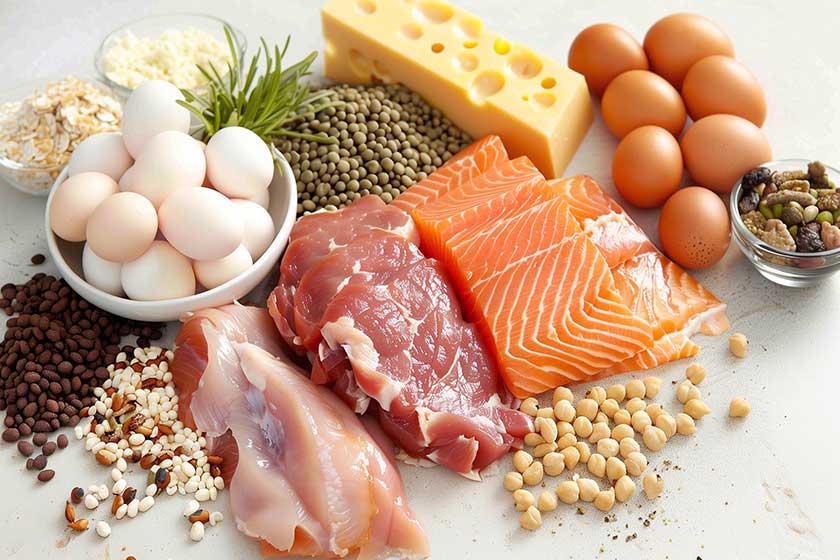Everyone’s nutritional needs change over time, so staying on top of what you consume can make a significant difference in your life. That is why nutrition intake monitoring for seniors is so important — it helps you adapt to these bodily changes, ensuring that you receive the nutrients you require to function optimally as you age. Learn more about the benefits of nutrition intake monitoring as well as some tools for implementing this practice effectively.
Understanding Aging and Changes in Nutritional Needs
As you get older, your metabolism slows down. This means your body requires fewer calories but more nutrients like vitamins and minerals. This shift makes it important to focus on the quality rather than the quantity of your food.
Furthermore, cognitive decline, including memory issues and reduced ability to plan and prepare meals, can further complicate nutrition intake. Forgetting to eat, skipping meals or not remembering what you have already eaten can lead to inconsistent nutrition.
These challenges highlight the importance of having a support system and using tools to help document your food intake. Ensuring you get enough nutrients as an older adult can help maintain your energy levels, muscle mass and bone density, as well as support your immune function and cognitive function. Eating a balanced diet rich in fruits, vegetables, whole grains and lean proteins can also help prevent many common age-related health issues.
What is Nutrition Intake Monitoring?
Nutrition intake monitoring involves keeping a detailed record of what you eat and drink. This practice helps you keep track of essential nutrients, identify any nutritional gaps and make informed decisions to adjust your diet as needed. By doing so, you can proactively address potential deficiencies and ensure you are meeting your body’s needs as you age.
Benefits of Nutrition Intake Monitoring
Regularly monitoring your nutritional intake can have significant benefits. First, the early detection and prevention of potential malnutrition is a key benefit. By keeping an eye on what you eat, you can spot any deficiencies and take action before they lead to serious health issues and related complications.
Secondly, managing chronic conditions such as diabetes, hypertension and heart disease becomes more straightforward with proper nutrition monitoring. A well-balanced diet tailored to your specific needs can help control these conditions and reduce the risk of complications.
Thirdly, paying close attention to your diet can ultimately increase your quality of life and longevity. Proper nutrition supports better senior physical and mental health, allowing you to stay active and engaged in your daily activities. By taking the time to monitor your food intake, you invest in staying always aware of your long-term health and well-being, ensuring you can enjoy your golden years to the fullest.
Tools and Methods for Monitoring Nutrition Intake
One of the simplest and most effective methods is keeping a food diary or journal. By writing down everything you put into your body each day, you can get a clear picture of your dietary habits. This helps you identify patterns, recognize areas where you might be lacking certain nutrients and make necessary adjustments to your diet.
Mobile apps are another valuable resource for tracking your nutrient intake and planning your meals. These apps often include extensive food databases, making it easy to log meals and see a detailed breakdown of your nutritional intake. Some apps even offer features such as barcode scanning, recipe suggestions and reminders to eat at regular intervals, all of which can simplify the process of eating right.
Other technologies such as wearable devices and smart kitchen appliances can make the habit of tracking food intake less daunting and more accessible. Choosing tools that are easy to use and suit your lifestyle perfectly can empower you to take control of your nutrition and intake monitoring.
Moreover, consulting with healthcare professionals, such as dietitians or nutritionists, can provide personalized dietary advice. These professionals can assess your current diet, identify nutritional deficiencies and recommend adjustments. Regular consultations can help ensure that you are on the right track and provide you with ongoing support and motivation.
Using a combination of these tools and methods can make nutrition intake monitoring a manageable and effective part of your daily routine.
Implementing Nutrition Intake Monitoring Going Forward
All in all, monitoring your nutrition intake on a day-to-day basis is integral to your health and well-being. Recognizing the evolving nutritional needs, understanding the challenges involved and utilizing effective tools and methodologies for nutrition intake monitoring are critical to ensuring a balanced diet.
Through proper nutrition intake monitoring, you experience benefits like prevention of malnutrition, better management of chronic conditions and overall improvement in your physical and mental health. Using food diaries, mobile applications and professional consultations can make nutrition intake monitoring even more manageable and effective.







